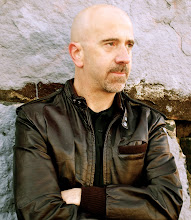Interesting article in the Wall Street Journal online edition Sunday titled "Authors Feel Pinch in Age of Ebooks," regarding the difficulties being faced by authors of so-called "literary" novels in the rapidly-changing environment of bookselling and publishing early in the 21st century.
If you're not versed in the difference between "literary" novels and "genre" novels, this is how I view it: Authors of "literary" works win the snooty literary awards; they get recommended by Oprah for her book club; they write stories where nothing much really happens.
Authors of "genre" fiction win awards, too, they're just not the snooty ones. Their awards have mostly been developed by purveyors of the different genres (horror, mystery, thriller, romance, etc) to recognize the outstanding authors and works that might otherwise be overlooked. Those authors don't often end up on Oprah's couch, but they do write stories where lots of stuff happens.
Anyway, as a writer of genre fiction I am naturally predisposed toward it. And any media attention toward authors and the changing publishing landscape is a good thing. But a few things in the WSJ article rubbed me the wrong way. Here are a few examples:
- WSJ: "It has always been tough for literary fiction writers to get their work published by the top publishing houses."
- My response: You should remove "literary" from the above sentence. It has always been tough for all fiction writers to get their work published by the top publishing houses. It's the law of averages. Lots of people write manuscripts; relatively few of them can be published. It's like trying to make the major leagues - lots of people play baseball, very few of them at the big league level.
- WSJ: "...publishers who have nurtured generations of America's top literary-fiction writers are approving fewer book deals and signing fewer new writers. Most of those getting published are receiving smaller advances."
- My response: Again, why limit the point to literary fiction? If you remove the "literary" from the quote, it is just as applicable. Smaller advances and fewer book deals for all but the blockbuster authors are the norm as publishers try to figure out how the hell they're going to survive.
- WSJ: "...fewer literary authors will be able to support themselvs as e-books win acceptance, publishers and agents say."
- My response: I have a couple. First of all, remove the "literary" again from the above quote. If it's true for literary authors, it's true for all authors.
Second, of course publishers and agents would say that. Those savvy to the new technology might disagree. Ask JA Konrath, who has trumpeted to the world the success he has achieved marketing his work on e-book platforms, making more money faster in this new reality than he ever did as a member of Big Publishing. Of course, JA Konrath probably qualifies as the ultimate "genre" writer, making him one of those unwashed masses of authors the WSJ seems intent on ignoring.
- WSJ: "The new economics of the e-book make the author's quandary painfully clear: A new $28 hardcover book returns...15%, or $2.40, to the author. Under many e-book deals currently, a digital book sells for $12.99, returning...typically 25% of that, or $2.27, to the author."
- My response: Again, I have a couple. First, someone in editing at the WSJ forgot to add "literary" into the above statement, and for that I applaud them, even if it was by accident. The quandary for the "literary" author is the same as the quandary for the "genre" author.
Second, the above statement is true as far as it goes. But the real question is this: How many books will you sell at the $28 price and how many will you sell at the $12.99 price? It is entirely possible that the author will benefit more from 25% royalties on a $12.99 book than from 15% royalties on a $28 book. It depends how many more sales you will make at the lower price. JA Konrath would argue, and I would agree, that the author would benefit the most from an even lower price, inflating sales far beyond what they would otherwise be, as readers take a chance on a book for which they have to spend just a few dollars.
Third, the advantages of signing with a "Big" publisher, especially if only e-books are involved, might be negligible at a 25% royalty rate. Many, if not most, smaller, independent publishers offer a far higher royalty rate on e-books than 25%. Most are at least 40% and many are even higher. Konrath's deal with the brand-new Amazon Encore nets him a royalty estimated far north of 50%, although he is prevented contractually from specifying the exact number.
- WSJ: "...many editors are no longer committing to new writers with the expectation that their story-telling skills will evolve with the second, third, and fourth books. In the past, many literary authors were able to build careers because of such patience..."
- My response: Ah, why bother. I'm sure you get it by now.
The continuing adventures of one man's quest to achieve publication, validation, and money-make...shun...
Tuesday, September 28, 2010
Subscribe to:
Post Comments (Atom)















No comments:
Post a Comment